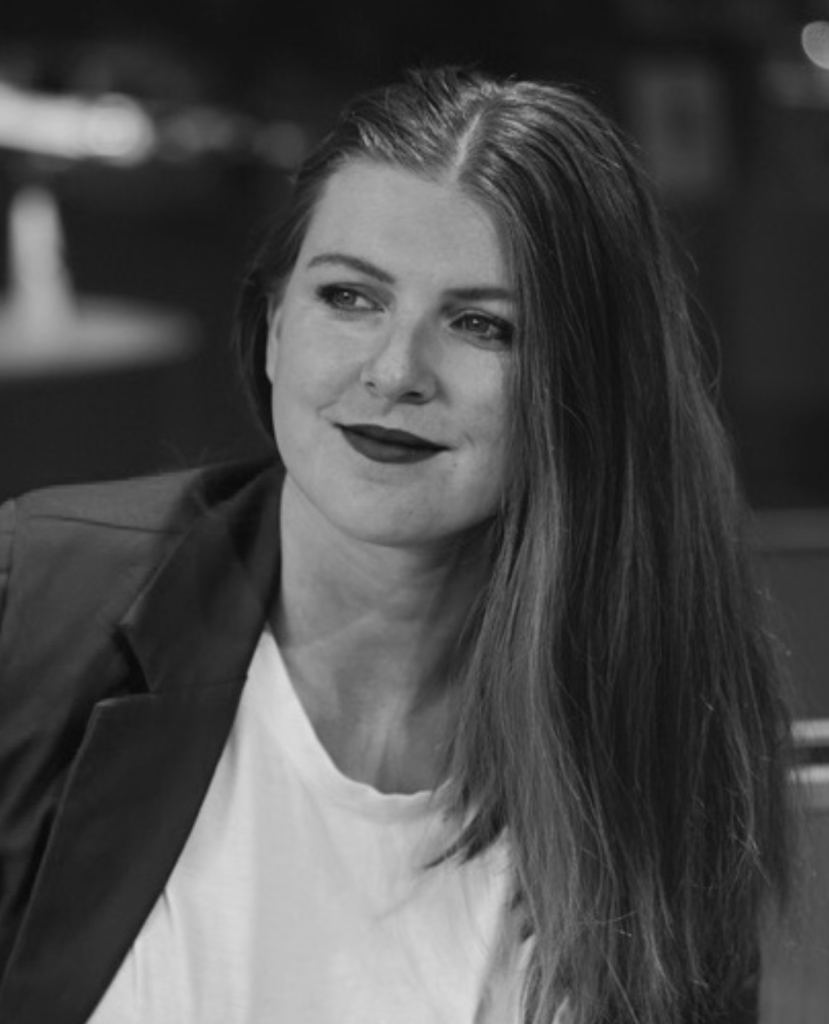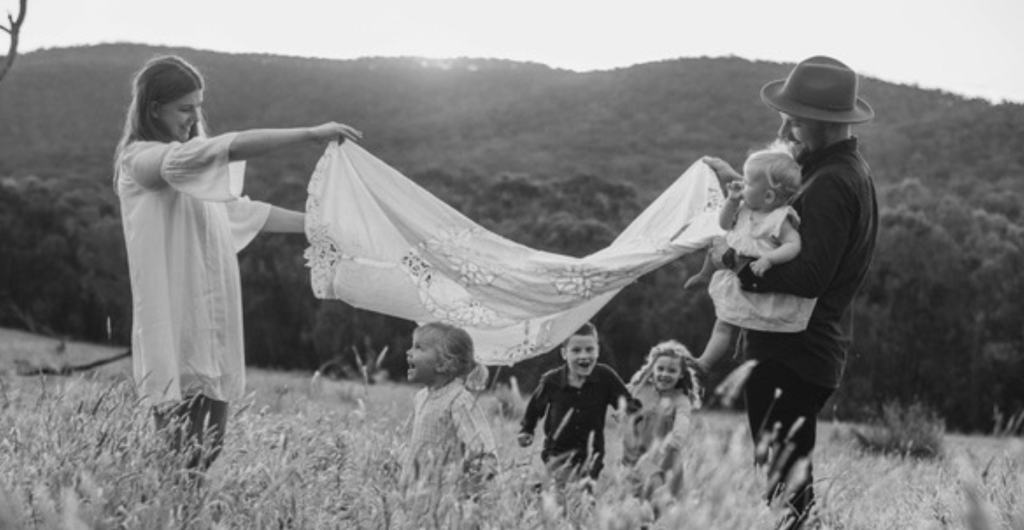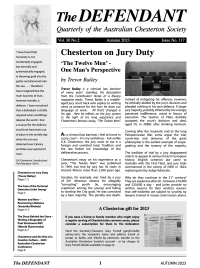
Chesterton’s defence of the family has become even more sharply relevant since he began writing on the subject more than a century ago. Dale Ahlquist has now brought together a selection of these writings in The Story of the Family (Ignatius Press, 2022).
In this review, Veronika Winkels (pictured), a freelance writer who is the founding editor of Mathilde Magazine, seeks to distinguish Chesterton’s insights of perennial value about women from those conditioned by the social changes and directions of his time.
That G. K. Chesterton spoke great truths, with the incisive clarity, wit and whimsy that have become the hallmarks of his writings, there is no dispute, and his strong defence of the family has been given new insight in Dale Ahlquist’s The Story of the Family.
Distilled from the huge corpus of Chesterton’s work, and organized around such familial themes as romance, marriage and sex, children and their education, motherhood and feminism, Ahlquist has gifted a valuable addition to understanding the enduring legacy of Chesterton.
That everything Chesterton ever said was incontrovertibly true is, however, harder to defend. That should not detract from the glorious lines many still love to cite such as, “if it’s worth doing, it’s worth doing badly.” Chesterton’s great genius for literary symmetry, analogy, alliteration and flourish has contributed largely to his readability and continuing popularity.
Yet perhaps it was also, at times, a distraction, for him as a writer, and us as readers, from detecting such things as the social and cultural assumptions that informed many of his views. His indefatigable search for, and defence of, truth was possibly at times obstructed by an indefatigable flair for telling it.
Yet I am here to add my endorsement to this inventory of Chesterton’s wisdom on the subject of family. It is a joy to read such dark humour as: “of course it would be worthwhile to pay a big price to get a well-informed people. At the present moment we are paying an abominably big price to get a more and more ill-informed people.” Such adages are only becoming more germane today.
At the same time, Chesterton’s views on women and feminism, a topic given considerable space in The Story of The Family, presents, in my estimation, a sizeable anomaly that has repercussions for women and men today reading — and revelling in — Chesterton.
As a woman who was married (to a man, for clarity!) at the age of twenty-one and have since become mother to our four children, I hope I might defend myself against any accusation of being adversarial towards family. Yet reading the extracts on feminism in The Story of the Family, I gathered a sense that Chesterton might still not approve of me.
I agree wholeheartedly with Chesterton’s doubts that women “were ever tortured so much as they are tortured now by the absurd modern attempt to make them domestic empresses and competitive clerks at the same time.” We should not be expected to be either… but still less only to aspire to be domestic empresses. (Another presumption of the time one might detect here is that the highest career to which a woman would aspire is as a clerk.)
I hesitate to call myself a feminist, and not sure I qualify for the raging sort, but I cautiously call myself one, with the proviso it is a reclaimed feminism — drawing closer to a version that advocates for the Proverbs wife (in the Old Testament, chapter 31), who has the opportunity to consider a field and to buy it (31:16), to plant a vineyard or to establish and run her own business, selling the linen sheets she has woven (31: 24), if her talents and desire are so inclined.
The woman’s role in the home ought to be recognized, legally (enfranchisement) socially (equal opportunity) and spiritually, in that she might exercise her feminine genius directly in society, as well as through the channel of her children’s education and in homemaking.
Reading the excerpts of Chesterton chosen by Dale Ahlquist on this subject, I sense that in so saying, I might be genially huffed and puffed at, then served a volley of able analogies, alliterations and other fine word-plays to prove me wrong.
How Chesterton might marry the Proverbs wife, to whom we are adjured to “give her of the fruit of her hands, and let her works praise her in the gates,” with his idyll of woman, wife and mother, I cannot make out.
Chesterton’s rationale is impeccable, in all things. But the presumptions underpinning his views of women’s roles in society are more informed by the culture of the times than the biblical foundations for his religious faith.

When he says, “There is certainly nothing but nonsense in nine-tenths of the talk about the emancipation of women. If education is the highest function of the State, why should anyone want to be emancipated from the highest function in the State?” he reveals the underlying presumption of the times that the raising and educating of children is woman’s work alone.
This is perhaps proof that, though tradition can distil foundational truths, it can also accrue certain errors that compound and multiply. The trick for our times is, I suppose, to not answer revolution by flying straight back to a revival of the old order, but finding out whether the cause of disruption might be a fair cause, at least in its roots, however poorly played out.
In a sense, it is the prerogative of anyone with a due appreciation of history and tradition to have such suspicion of anything new. If it is not tempered by an openness to seeking any virtue in what is new, however, such a posture can work against itself ultimately.
Reaction to early directions of feminism
Chesterton’s views on the role of women was, I believe, in part a reaction to the direction feminism was taking in his day, and the disarray into which it was throwing every tier of society (accelerated by women’s involvement in the war effort during the World Wars.)
The abiding sense one gains from reading Chesterton on this topic is that the social and familial disruption that ensued with the cause for women was the very proof it was something to disparage. Yet when my house requires a good tidy (I am generally a good house-keeper), it must become more chaotic before the order can be re-established.
The general impression Chesterton displays is that women who undertake any role beyond the home and family does not benefit her — or them — by it. His assumption, for example, that a mother’s role is half-hearted when she is not at home full-time, or attending to her children full-time is simplistic. This is a misjudgment, and not a small one, in an otherwise towering intellect.
Chesterton should be easily forgiven his views on feminism, however, because they are made in defence of a very noble cause — the flourishing of the family and the happiness of the home.
Even insofar as his views of feminism go, there is much upon which I agree. But Chesterton is a romantic. He prides himself on being a happy fool, but this naivety is not without culpability.
Chesterton believed that the role most congenial to women was achieved by “partly limiting and protecting the woman [so] that she was enabled to play at five or six professions and so come almost as near to God as the child when he plays at a hundred trades.”
But I don’t want to just play at being a writer. I want to be able to, as I thankfully am able to, aspire to being a real one. And that requires participation in public life, with all its encouraging praise and helpful criticism to guide my craft along the way.
Dale Ahlquist has rendered a valuable service with The Story of the Family. We need champions of a “common sense revival”. And champions of the first unit of society, now more than ever. It has also served, however, to ignite a new conversation amongst, and perhaps to issue a new challenge to, devotees of Chesterton and all he represents about how men and women may build upon his legacy, to protect and advance the family.
